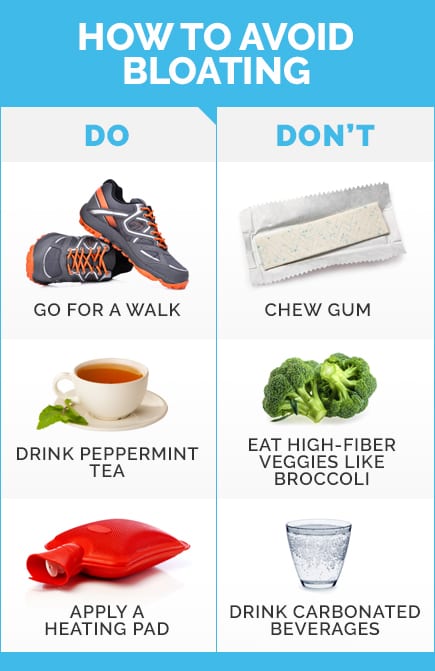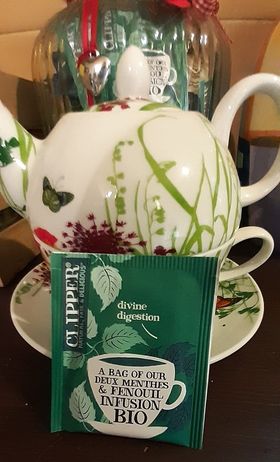Bloating – what foods can cause it…and what foods can help it?
Recently I have been having several conversations with different clients about food, and “Bloating” if you have suffered or do suffer you know it is the most painful and uncomfortable feeling ever! Somedays it seems nothing you eat is right, it just makes you feel worse, then the fatigue sets in and generally feeling horrible and sluggish? We never like to talk about it but it happens and more and more people seem to be suffering!
There are many reasons and as no Body is the same, this means no digestive system is the same, our bodies all work differently so what is good for some of us, has the opposite effect on others! This is true of IBS what some people can eat, I just can’t but what I have now found I can eat others have to swerve!
I don’t have IBS apparently, having spent two years trying to work out what is good and what is not, I came to the conclusion to try and see but if it leads to pain each time – no, it’s not worth it
I have cut out more and more over the last year but now gradually am adding foods back in that I have missed (KALE is not ONE of them) but recently added Chick Peas, but Lentils were not good and some High FODMAP fruit and veggies have been tolerated – it’s still ongoing but I am working out what helps me and what makes me feel bad! Do you know your Triggers? It does help to write down a meal that has left you feeling bloated as we do tend to forget in the grand scheme of things – what it may have been!
However, I am always willing to try new ideas and to be honest I think I will persevere with some of the foods I am actually missing, what this leading nutritionist suggests in this following article says – makes sense.
So if you feel uncomfortably bloated after meals, it might be time to look at the types of foods that are being eaten, here are the top foods that lead to bloat, plus the seven best foods you could potentially eat to reduce uncomfortable bloat and gas…

Worst: Broccoli, cabbage, kale
Kale, broccoli, and cabbage are cruciferous vegetables and contain raffinose—a sugar that remains undigested until bacteria in your gut ferment it. That produces gas and makes you bloat. But don’t shun those healthful greens just yet. Consistently eating nutrient-rich, high-fiber foods leads to having a stronger, healthier digestive system that’s less prone to bloating.
So keep eating the green stuff, but limit your portions. And if you absolutely can’t part ways with even a gram of kale, steam it: Cooking any vegetable softens the fibre and shrinks the portion as some of the water cooks out, so it takes up less space in the GI tract. It won’t eliminate or prevent bloating altogether, but it may make your veggies easier to digest.
Worst: Legumes
It’s probably not news to you, but beans, along with lentils, soybeans, and peas, are gas-causing foods. These little guys are basically bursts of protein in a pod, but they also contain sugars and fibres that our bodies can’t absorb. So when legumes reach the large intestine, your gut bacteria take the lead and feast on them. This process leads to gas, which can balloon your waist.
Combine legumes with easily digestible whole grains, like rice or quinoa. Your body will eventually get used to them. If you eat fruits, veggies, nuts, whole grains, and beans often, they won’t bother you as much as if you eat them sporadically.
Worst: Dairy
If you feel gassy after a few slices of cheese or a bowl of cereal with milk, you may be lactose intolerant—which means your body lacks the necessary enzymes to break down lactose (the sugar found in dairy products). That can cause gas to form in the GI tract, which may trigger bloating.
So before all that gas gets to you, steer clear of dairy products and opt for the many lactose-free or nondairy alternatives out there.
Worst: Apples
An apple a day may save you a trip to the doctor’s office, but it does not keep the bloat away. High in fiber, apples also contain fructose and sorbitol, sugars found in fruits that many people can’t tolerate, Sass says. The result? You guessed it: gas and the inevitable puffy feeling.
Apples are a great snack, however, so don’t give up on them altogether. Eating apples specifically has been linked to a lower risk of heart disease and respiratory problems, including asthma, bronchitis, and emphysema. Eat them in moderation and separately from meals, and time your eating right: Other fruits that bloat: pear, peaches, and prunes.
Worst: Salty foods
Eating high-sodium foods can trigger water retention, which can balloon you up.
Avoiding sodium isn’t as simple as steering clear of the saltshaker, however. To include salt for a healthy diet – 2,300 mg per day for most people, and 1,500 mg for adults over 50, plus people with diabetes, high blood pressure, and high risk of hypertension.
Sodium sneaks its way into most processed and packaged foods, including soups, breads, and these other surprisingly salty foods. That makes it very difficult to avoid. When and if you do succumb to salt, drink a lot of water to help flush it out.

Best: Cucumber
People use cucumbers to reduce puffiness under their eyes—and you can eat them to do the same thing for your belly. The vegetable contains quercetin, a flavonoid antioxidant that helps reduce swelling.
Cucumbers have been shown to inhibit the activity of pro-inflammatory enzymes.
So slice it up and eat it as is, or swap sugary drinks with a glass of cucumber water.
Best: Bananas
Foods rich in potassium—like bananas, plus avocados, kiwis, oranges, and pistachios—prevent water retention by regulating sodium levels in your body and can thus reduce salt-induced bloating. Bananas also have soluble fibre, which can relieve or prevent constipation.
Bloating can also be caused by constipation. If you’re not able to eliminate waste in the GI tract, you become ‘backed up’ so to speak, which can lead to a bloated look.
Best: Papaya
The enzyme in papaya, papain, helps break down proteins in your GI system, which makes digestion easier. Sass says that the tropical fruit also has anti-inflammatory properties, as well as fibres that support a strong digestive tract.
Eat papaya whole and fresh or blended into a smoothie.
Best: Asparagus
Asparagus is an anti-bloating superfood. Sure, it makes your urine smell, but it also makes you pee, period—helping you flush all that excess water, thus relieving any discomfort and bloat.
It also contains prebiotics, which help support the growth of ‘good’ bacteria. This helps maintain a healthy balance in your digestive system to prevent and/or reduce gas.
Finally, the vegetable contains soluble and insoluble fibres, which helps promote overall digestive health.
Best: Yogurt with probiotics
Get some of those good bacteria into your gut! Called probiotics, they help regulate digestion and champion the overall health of your digestive tract. Sure, you can take probiotic supplements, but you may as well get a breakfast out of it.
So eat your bloat away with yogurt that has active cultures. You can sweeten it with a little honey, jam, or granola.
Best: Fennel seeds
Fennel is a digestive tract saviour. The seeds have a compound that relaxes GI spasms, which allows gas to pass and relieve bloating.
You can find fennel and fennel seeds in breads, sausages, and other meat dishes. You can also chew on the seeds directly or sip on a fennel tea at the end of a meal.
Best: Ginger
Ginger contains the digestive enzyme zingibain, which helps your digestive system break down protein. The compound potentially helps food be digested more easily, reducing bloat, gas, or constipation.
If you already feel bloated, you probably don’t want to eat—so instead, sip homemade ginger tea: Steep a few slices of sliced ginger in a mug of hot water for five to 10 minutes.
Best: Peppermint and chamomile tea
If you’re feeling puffy after dinner, you can sip on a hot cup of peppermint or chamomile tea. Both kinds relax GI muscles to help dissipate the gas that causes your stomach to bloat.
Aside from improving digestion, chamomile can also soothe and relax, which can help ease any sort of stomach discomfort. Cynthia Sass, RD, MPH – for Health.com
I have a lovely Clipper Digestive Infusion https://www.clipper-teas.com/ – it is very soothing and does seem to help after some meals!

I also have a stock of peppermint tablets that I use when needed – very easy to make, very inexpensive and natural!
I hope this helps a little – as I say it’s really an ongoing quest for us all that do have some form of stomach issues – hopefully over time we can eradicate the worst of the pains. There can be so many issues that cause stomach problems but finding what you have so that you can work with it can be hard.




